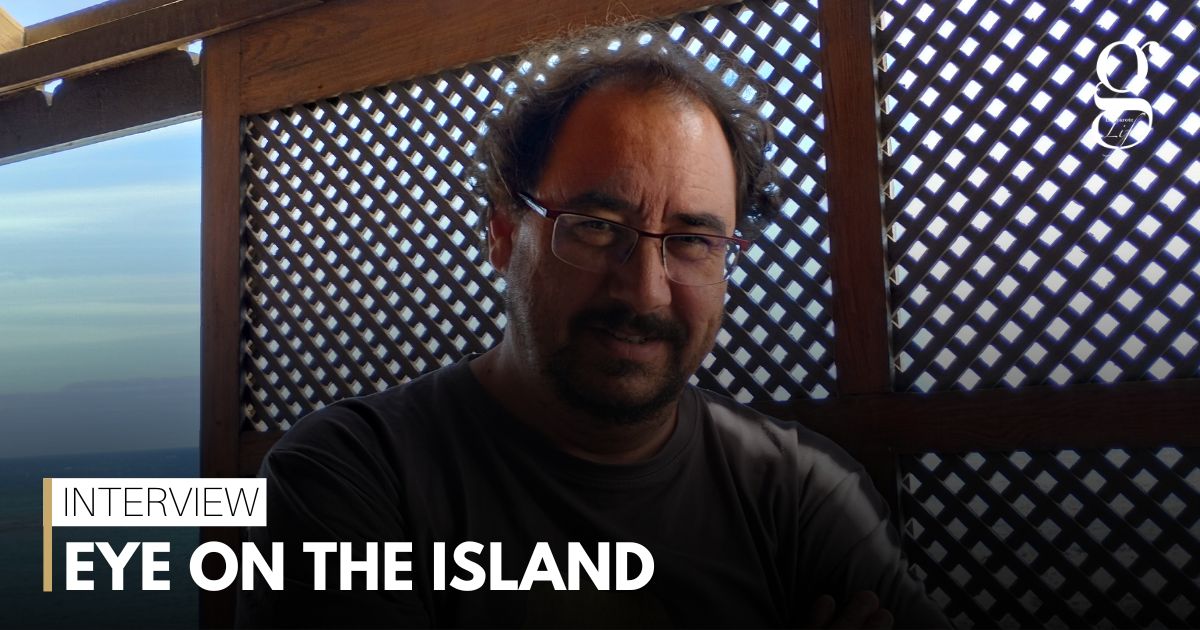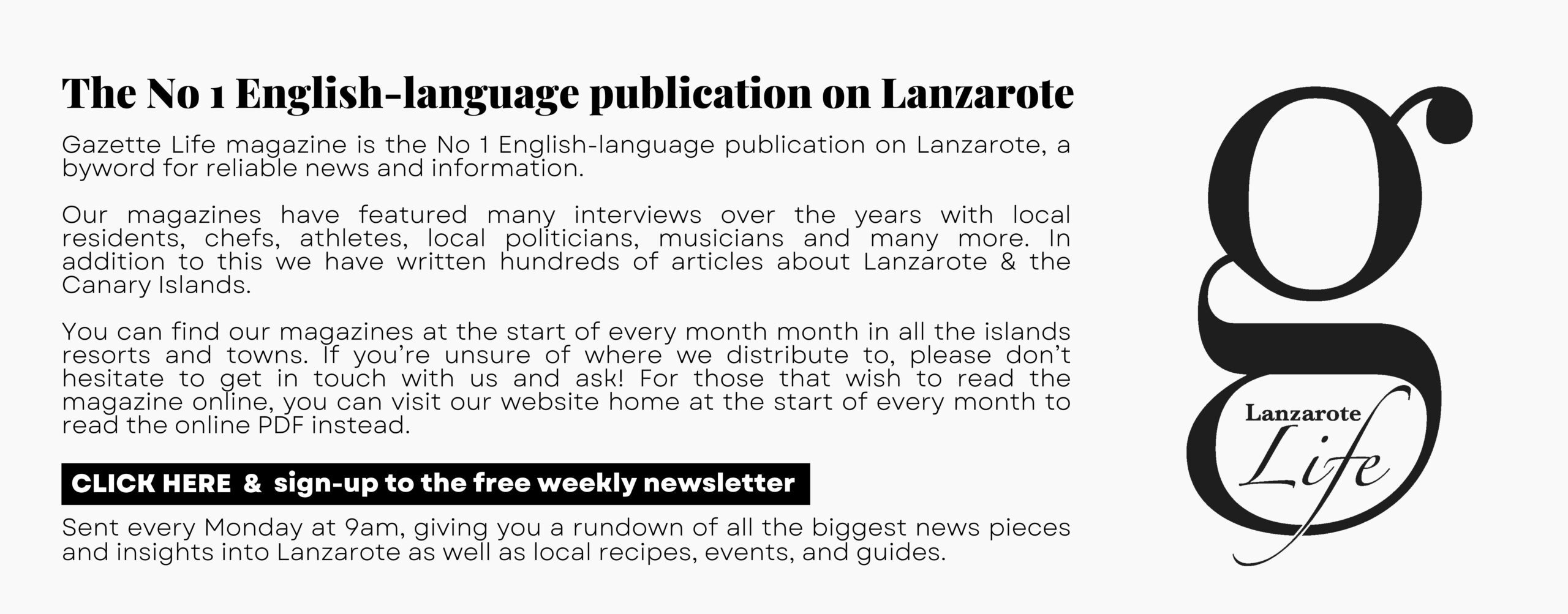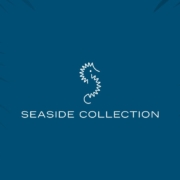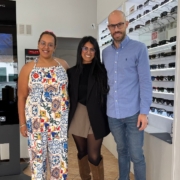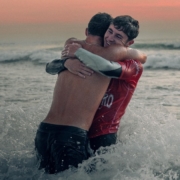Lanzarote is well-served by the press. There are several digital news sites online, some of which print monthly editions; two Canarian newspapers which also carry coverage of the island and a number of local radio and TV stations too. Journalism and a free press are regarded as essential elements of Spain’s democracy.
Saúl García is a freelance journalist who is one of the main contributors to El Diario de Lanzarote, an online paper that also prints a monthly edition. He says that his job is “not just to tell people what has happened, but to explain it to them, too.” We spoke to him last month about the issues that affect the island as we head into another election cycle.
The President of the Cabildo recently talked about “saturation” of the island. What are your thoughts on that?
It’s unarguable. There were 2.5 million tourists last year, and it’s placing a lot of pressure on the island. Tourism is our main industry and will remain so, but we need to look at ways of depending on it less.
We’ve seen elsewhere that more tourism doesn’t necessarily mean more money. Jobs in the tourist industry are often not well-paid, and a study by the University in Las Palmas has shown that it costs more public money to create jobs like this than they raise in taxes. Meanwhile, unemployment hasn’t really gone down – there are still 15-20% of people unemployed, and the figure is far higher among young people.
What effects has the changing nature of tourism had?
Well, there’s the effect that the internet is having on our environment. Ten years ago you could go to “secret’ places and you’d be alone. Now, they’re much easier to find. Take Las Grietas on Montaña Blanca, for example – I didn’t know where they were myself, but now you can pinpoint them easily online.
I get a bit annoyed when I see people calling Las Grietas “A mini-Grand Canyon” on Instagram. The island’s landscape should be appreciated and respected on its own terms, not used as a photo opportunity. We’ve already seen damage caused to these spots by tourists who don’t respect the rules and the environment.
In addition to that, tourism also contributes to a problem that is becoming very serious indeed – the housing shortage.
How is that affecting the island?
It’s becoming more critical all the time. If you work in a hotel in Playa Blanca, earning the sort of wages they pay in hotels, you can’t afford to live in Playa Blanca. There’s simply no affordable housing there.
It’s also causing a shortage of professionals, such as teachers and doctors, who are unwilling to come to the island because of the price of property and high rents.
We’re seeing tourists staying in places they never did previously, such as Arrecife. If you own a flat there, and you can rent it out for a week to someone from Manchester for four times the money you’d get from a resident tenant, then of course you’d think about it.
You write a lot about renewables. How is Lanzarote faring in the battle against climate change?
It’s been very slow, and I’d like to see more decentralisation of energy. Most of the renewable sources are still controlled by the big energy companies. The wind farms here are publicly-owned, and the administration involved there is always slow, and has to take into account aspects such as visual impact.
I understand that – people don’t want to see lots of wind turbines on the horizon, but I see no good reasons to limit solar energy. That’s an area that should be expanding rapidly, where we could do a lot better. Local businesses are already miles ahead on this.
Public transport is also a part of that. The car is still king on Lanzarote.
We can’t continue like this. I think we need to invest at least twice as much money in public transport on the island. 80% of residents live in a triangle that can be drawn from Puerto del Carmen to Arrecife and Tahiche inland, and fast, efficient public transport is vital in those areas. But we’re also seeing more and more tourists using buses, and outlying areas also need better services.
Are there any other pressing issues for the island?
Water. It’s a huge problem, with almost two-thirds of production being lost to leaks. Some sources say that the water system on Lanzarote will require an investment of €3 billion.
What about the fish farms that are planned off the coast of Arrecife, Playa Honda and Puerto del Carmen?
I have an opinion that isn’t very popular on this issue. I think as a society we need fish farms. Wild fish will very soon become a luxury, and Lanzarote, with the port and fishing school in Arrecife, is well-prepared for them. There are examples elsewhere of fish-farming coexisting with tourism, so as long as the environmental impact is assessed correctly, I’m not against them in principle.
What do you expect from the elections in May?
I don’t think much will change. During the last campaign, parties didn’t really address things that were important, and they’ve used the pandemic to justify the lack of achievements in the time since. They haven’t made any serious errors, but there have been few achievements, either. At a local level, there isn’t that much difference between the parties. There is lower participation in politics and the focus is on a few subjects. Meanwhile, the island still has no clear plan for 30 to 40 years ahead.
Thanks, Saúl.
For regular updates, pictures and videos of Lanzarote be sure to like and follow our Facebook page “Gazette Life Lanzarote”.


